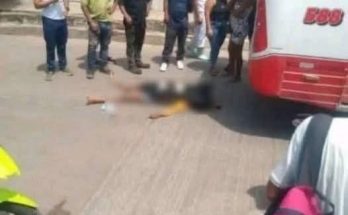 Amelia has been left paralyzed. Credit: GoFundMe
Amelia has been left paralyzed. Credit: GoFundMeAmelia Keam was enjoying herself at The Hamilton Station Hotel in Newcastle, Sydney, on March 22 when she suddenly felt dizzy, lost consciousness, and collapsed.
Without warning, she had gone into cardiac arrest.
Luckily, two off-duty Australian Defence Force members who were nearby rushed to her aid and performed life-saving CPR until paramedics arrived.
Although Amelia’s heart had stopped, she was revived at the scene and rushed to John Hunter Hospital. There, doctors placed her in an induced coma as they scrambled to stabilize her condition.
The cause was a stroke that cut off blood flow to the area where the brainstem connects to the spinal cord — the part responsible for controlling motor reflexes.
The damage left Amelia paralysed from the neck down, completely dependent on a ventilator to breathe.
Her father, Stephen Keam, is still in shock. “How does this happen to a 26-year-old female that goes to the gym every single day?” he asked, holding back tears in an interview with 7NEWS.com.au.

Amelia, known as “Amy” to friends and family, had everything going for her. She was a psychology graduate, worked as a support coordinator in a mental health facility, and had a passion for helping others.
“She is really active, like she loves being outdoors, hiking, like going to the gym and different sports and things like that,” her best friend Chloe Gillette shared.
Amelia was also working part-time as a model and planning to pursue a master’s degree in psychology. Gillette, who has known her for 16 years, described her as “a really beautiful soul” with “a very different sense of humour but you’d always have a good laugh with her.”
Stephen described his daughter with equal adoration: “She’s the most beautiful person I’ve ever known inside and out.”
“I was, and still am, incredibly proud of her,” he said. “Even though she can’t move at all, she lies there, unable to swallow, breathe, or speak. Yet, she remains perfectly polite to everyone who comes near her. She says ‘please’ and ‘thank you,’ and it’s just phenomenal.”
“She smiles, she’s still cracking jokes. She can’t move. She’s a complete quadriplegic … she’s making everybody else laugh around. She’s been very, very strong.
“I don’t know how she’s not angry at the world.”

Now fully conscious, Amelia is aware of her condition. But that awareness, her friend says, comes with added pain.
“She’s quite aware of what’s happening which I don’t know that kinda makes it worse in some ways,” Gillette said.
Amelia’s support system has been steadfast. Alongside her father and sister, Chloe and five other close friends have been rotating visits at John Hunter Hospital before she was recently transferred to Prince of Wales Hospital.
At one point, Stephen said, doctors brought up the possibility of euthanasia — until they realised Amelia had a chance to recover with long-term intensive rehabilitation.
But the road ahead is anything but easy. Every small task — from breathing to blinking — now requires help. Amelia’s recovery demands a comprehensive team of specialists, including neurologists, physiotherapists, physicians, nurses, and social workers.
Stephen is now trying to move from Mackay in Queensland to Newcastle just to be closer to his daughter during her long hospital stay.
“We have no clue on how long it’s going to be, but… she won’t be coming out of hospital for a very very long time,” he said.

To help ease the burden of mounting medical bills and living expenses, Gillette launched a GoFundMe for Amelia.
“We are reaching out to you today to ask for your support as Amelia navigates this extremely difficult chapter in her life,” she wrote.
“Spinal rehabilitation is critical to helping Amelia regain as much function as possible after her spinal injury.
“Early intervention is essential to prevent further complications and reduce the length of her hospitalisation.
“She is facing mounting medical expenses, including treatments, therapies, and daily living costs, which are adding up quickly.
“Amelia’s road to recovery may be long, but with your help, we remain hopeful.”

